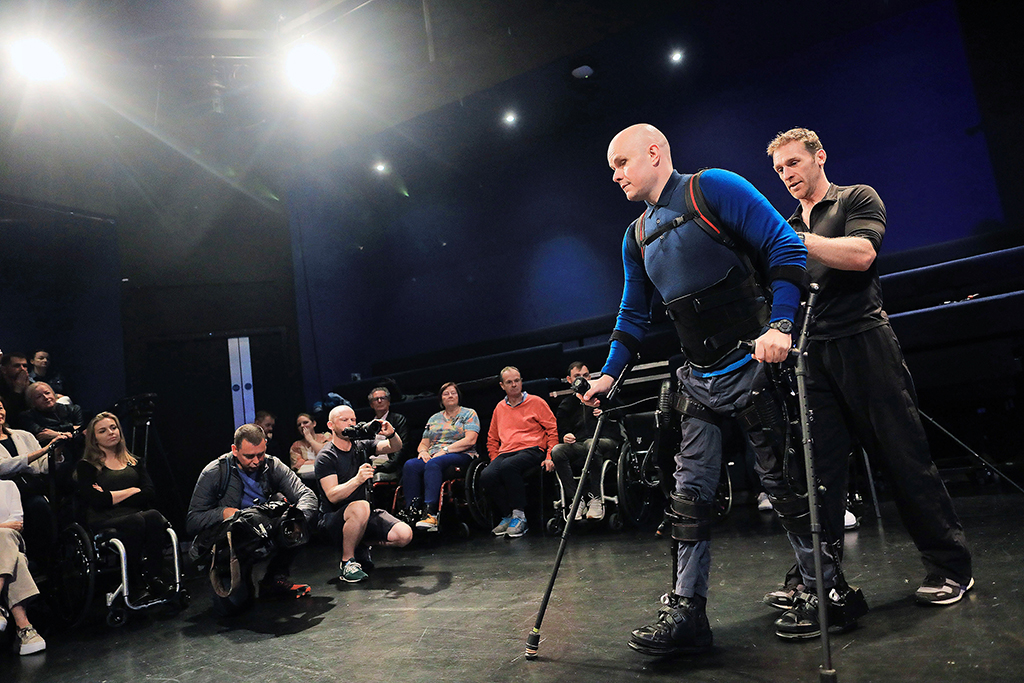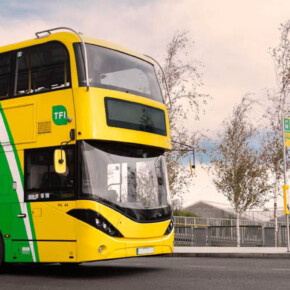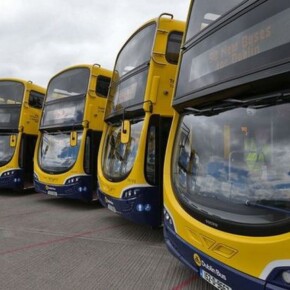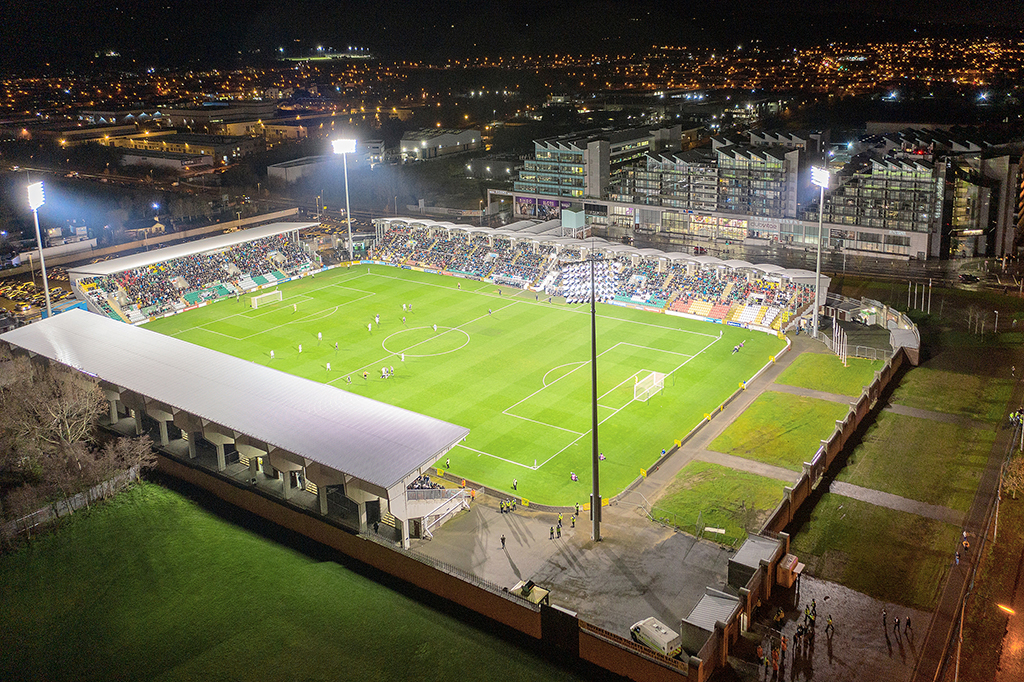Inspiring explorer launches hi-tech exoskeleton service
Dublin People 21 Sep 2019
RENOWNED explorer Mark Pollock was at Dublin City University (DCU) recently to launch a unique service for people affected by paralysis.
The DCU Exoskeleton Programme will provide them with free access to physiotherapist-led robotic rehabilitation.
The programme will enable people with reduced mobility due to paralysis from spinal cord injury, stroke, traumatic brain injury, Multiple Sclerosis or Parkinson's disease to complete sessions of supported walking, facilitated by a trained handler.
Under the direction of neurorehabilitation physiotherapist, Ronan Langan, the Exoskeleton Programme is designed to deliver an array of health benefits that regular walking provides.
Participants will be able to use the exoskeleton technology to improve their walking and assist them to get back on their feet.
Mark Pollock is collaborating with DCU on the groundbreaking programme.
Unbroken by blindness in 1998, Pollock went on to compete in ultra-endurance races across deserts, mountains, and the polar ice caps, including being the first blind person to race to the South Pole.
In 2010, a fall from a second storey window nearly killed him. Pollock broke his back and the damage to his spinal cord left him paralysed. He is now on a new expedition, this time exploring the intersection where humans and technology collide to cure paralysis in our lifetime.
The Ekso Bionics Exoskeleton used by the programme helps people with paralysis to stand up and walk, aided by a robotic frame that is strapped to the body.
The system was created by US company Ekso Bionics, who have worked with Mark Pollock to test components for the next-generation exoskeleton.
Pollock is regarded as the world’s leading test pilot for Ekso Bionic robotics legs and to date has taken over 1.5 million steps in the device.
“Finding a cure for paralysis is a human crisis requiring people to work together across geographical, organisational and intellectual boundaries,” he said.
“So, I’m focused on catalysing collaborations that have never been done before to make that cure a reality.
“And, that’s why I am excited to collaborate with Dublin City University and Ekso Bionics to launch our pioneering programme, which is now allowing more people access to cutting edge exoskeleton technology that I have benefited from for the last few years.”
President of DCU, Prof Brian MacCraith, said the programme harnesses DCU’s expertise to offer potentially life-changing benefits for individuals affected by paralysis.
“It also significantly advances the university’s goal to create a centre of excellence in robotic interventions in Neurorehabilitation,” he continued.
“Through initiatives such as the Exoskeleton Programme, DCU is delivering on its mission to ‘transform lives and societies’.”
Clinical Lead of the programme, Ronan Langan, said he felt privileged to lead the exciting robotic rehabilitation programme.
“Using exoskeleton technology, we are incorporating experts from DCU in health, body systems, biomechanics and engineering to maximise and improve service user’s mobility, health and quality of life,” he said.
“And by combining these disciplines and our team’s extensive knowledge of neurological injury and neurorehabilitation, we aim to make a meaningful impact into the research of better therapies for paralysis now and into the future.”











